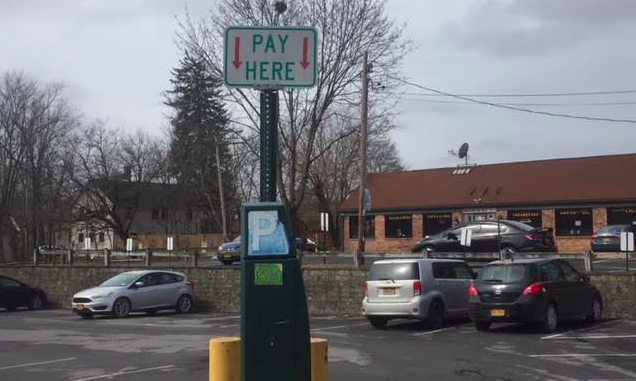
New Paltz Village Mayor Tim Rogers is considering hiking some fees to offset budgetary issues in the future.
These changes would include: eliminating free parking on Sundays, a hike in parking tickets from $10 to $20 and an increase in water and sewage costs.
Rogers is proposing eliminating Sunday as a day of rest in regards to parking instead of hiking prices for meters Monday through Saturday. He is also against the idea of instituting new meters that would put forth higher prices, which is time consuming and costly.
This, in cohesion with raising the costs of parking tickets, would generate money for the local economy and increase revenue. Rogers estimates it could generate up to $70,000 more in revenue from the tickets alone and up to $30,000 more for Sunday parking.
Generating this additional revenue would help offset and pay for costs needed to tend to other issues throughout the Village.
Additionally, Rogers is considering raising water and sewage costs while affecting as little people as possible. For instance, it would be a lot more costly for establishments and restaurants who use a lot of water all the time as opposed to the average resident who uses water at home.
“The idea is the more you buy, the higher the rate will be,” Rogers said. “We are trying to get the biggest users (of water) in town more motivated to conserve.”
Neither water nor sewer rates have increased since 2012, according to Rogers, yet costs with these systems continue to get higher. The water that New Paltz uses is obtained from the New York City Department of Environmental Conservation, which manages trillions of gallons of local rain water collected in city-controlled reservoirs throughout New Paltz.
The rates for this have increased 180 percent in the last decade while sewer expenditures including new equipment can reach millions of dollars.
These proposed changes if put into effect, would be present as of June 1.
